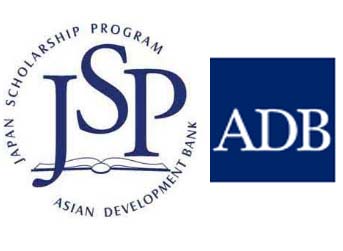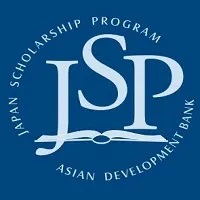I. Overview of the Asian Development Bank – Japan Scholarship Program
History and Purpose

The (ADB-JSP) was established with the generous financial support of the Japanese government in the late 1980s. The purpose of this noble initiative was, and remains, to provide an opportunity for well-qualified citizens of ADB’s developing member countries to pursue postgraduate studies. The vision is to empower individuals who can contribute to the economic and social development of their countries.
Origins of the scholarship
The scholarship’s origins lie in a strategic partnership between the Asian Development Bank and Japan, aiming to foster development through education. It was a response to the need for highly skilled professionals in Asia who could lead development initiatives and promote sustainable growth within their regions.
Partnership between the Asian Development Bank and Japan
The partnership focuses on sharing Japan’s developmental experiences and providing necessary funding, while the ADB administers the program, ensuring a broad impact across various sectors in the developing member countries.
The mission and objectives
The mission of the ADB-JSP is to strengthen human resource capacity in ADB’s member countries. It aims to boost education and health standards, reduce environmental degradation, and improve management of private and public administration.
II. Key Features of the Scholarship
Eligibility criteria

To be eligible for this scholarship, candidates must be citizens of an ADB borrowing member country and possess a bachelor’s degree or its equivalent with superior academic records.
Scope of financial support
The scholarship comes with a full tuition fees, a monthly subsistence and an allowance for bookshousing allowance, and instructional materials, medical insurance, and travel expenses.
Duration and renewal terms
The scholarship is generally granted for one to two years and is renewable annually contingent upon satisfactory progress made by the scholar.
III. Areas of Study Supported
List of fields and disciplines
Supported fields include economics, management, health, education, agriculture, environment, natural resource management, science and technology, and other development-related fields.
Focus on development-related studies
The primary focus is on studies that directly enhance the developmental potentials of the scholar’s home country.
Emerging sectors and innovations
In recent updates, the program has also started to support emerging sectors like sustainable energy, climate change, and advanced technology applications that address specific developmental challenges.
IV. Application Process
Preparing Your Application
Required documentation
Interested students must send a finished application package that typically includes a CV, a statement of purpose, letters of recommendation, and academic transcripts.
Academic prerequisites
Applicants are expected to have a relevant academic degree related to the field of study they want to pursue.
Language proficiency requirements
Applicants need to prove proficiency in the English language.
Selection Criteria
How candidates are evaluated
Candidates are checked based on their academic achievement, professional experience, and the potential impact of their work after returning to their home country.
Importance of development impact potential
The selection council is specially interested in students who demonstrate a strong potential to contribute positively to the socio-economic development of their home countries.
Submission and Deadlines
Key dates for application submission
The scholarship application timeline typically begins in April with varying deadlines depending on the chosen academic institution.
Tips for a timely submission
Start preparing your application early, particularly gathering documents and completing language tests.
Common pitfalls in the application process
Common application pitfalls include neglecting the need for thorough document proofing and underestimating the time required to secure recommendation letters.
V. Academic Life and Support Networks
Orientation and Initial Steps
Pre-departure preparation
Scholars receive guidelines on visa processing, accommodation arrangements, and a pre-departure orientation.
Initial orientation programs
The hosting university offers orientation programs to help scholars acclimate to the new academic environment.
Adaptation to academic life
Cultural exchange programs and academic workshops are part of efforts to integrate students into campus life effectively.
Ongoing Support Services
Academic advising and tutoring
Tailored academic support including mentoring and tutoring is available to help scholars meet their educational goals.
Counseling and wellness services
Mental health and wellness are prioritized with accessible counseling services for all scholars.
Networking opportunities
Active alumni networks and linking with professionals and experts in the scholars’ field of study highlight the program’s commitment to building long-term professional relationships.
Campus Life and Extracurricular Activities
Overview of campus facilities
State-of-the-art facilities support a conducive learning and research environment.
Clubs, societies, and sports
A broad range of extracurricular activities ensures scholars can pursue interests beyond academia.
Integration into the local community
Programs aimed at community integration help scholars engage with the local culture and community.
VI. Career Opportunities and Alumni Achievements
Internship and Job Placement Services
Partnership with corporates and NGOs
Strong collaborations with industries and NGOs facilitate internships and job placements for scholars.
On-campus recruitment activities
Regular career fairs and workshops provide networking and employment opportunities.
Internship opportunities during the study
Internships are highly encouraged to gain practical experience relevant to their academic pursuits.
Alumni Network and Support
Stories of notable alumni
Success stories of alumni who have ascended to impactful positions in their home countries inspire current scholars.
How the alumni network supports new graduates
A robust alumni network provides mentoring and job referrals to assist new graduates in their career paths.
Alumni events and continuing education
Ongoing learning and networking are supported through alumni events and opportunities for continuous education.
Impact on Career Trajectories
Long-term career outcomes
Many alumni have moved into significant roles within government, NGO’s, and the private sector, elevating the developmental profiles of their nations.
Roles in development initiatives
Alumni are often pivotal in shaping policies and implementing projects that stimulate socioeconomic growth.
Contribution to home countries
The ultimate aim of the scholarship is the transfer of knowledge and skills to the scholars’ home countries, contributing to their homeland’s development.
VII. Living and Studying in the Host Country
Cultural Adaptation
Understanding cultural norms and expectations
Programs and workshops are designed to orient scholars about cultural expectations and social norms in the host country.
Overcoming cultural shocks
Support systems like peer groups are established to help new scholars adjust smoothly to the cultural differences.
Financial Management
Cost of living considerations
Guidance is provided on managing costs effectively in the host country.
Budgeting tips for scholars
Financial planning sessions help scholars manage their stipends effectively.
Health and Safety
Health care services and insurance
Comprehensive health insurance is provided to ensure scholars can access medical services without financial burden.
Safety tips and emergency contacts
Orientation includes safety training and information on who to contact in emergencies.
VIII. Frequently Asked Questions (FAQs)
Who can apply for the Asian Development Bank – Japan Scholarship Program?
Any citizen of an ADB borrowing member country with a bachelor’s degree and superior academic records is eligible.
What are the covered expenses by the scholarship?
The scholarship covers tuition, monthly allowance, insurance, travel, and study materials.
Can the scholarship be renewed, and under what conditions?
Yes, the scholarship is renewable annually, based on the scholar’s academic performance.
What support does the scholarship offer for dependents, if any?
While the primary focus is on the scholars, assistance regarding dependents can be requested and is subject to specific terms and conditions.
How does this scholarship program differ from other international scholarships?
The ADB-JSP specifically targets the development potential of the Asia-Pacific region, with a robust focus on sustainable development and long-term socioeconomic benefits.
IX. Conclusion
The (ADB-JSP) offers more than just financial aid; it is a gateway to educational and professional opportunities that empowers individuals and enhances the development trajectory of entire regions. If you’re passionate about contributing to your country’s development and have the academic credentials to back it up, this scholarship may just be the stepping stone you need.
We encourage every eligible candidate to consider applying – this could be the beginning of a transformative journey not just for you, but for your community and country at large.
Read Also: Navigating the Chinese Government Scholarship 2024: Your Comprehensive Guide
